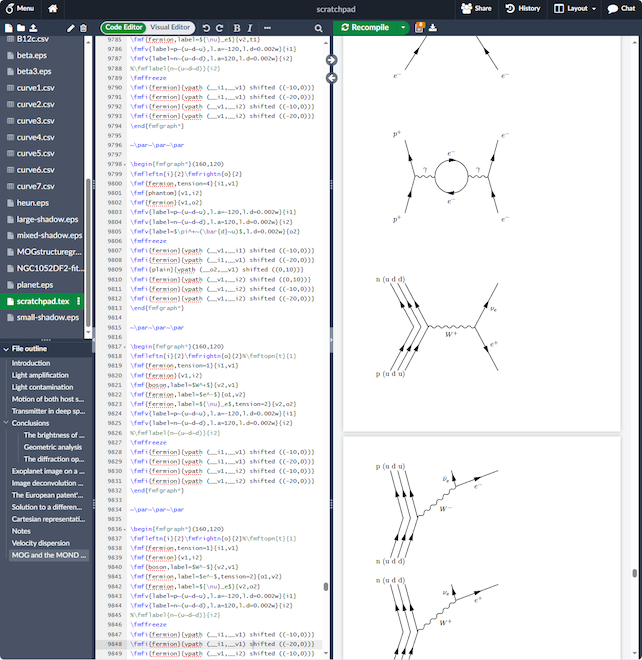Overleaf (sharelatex) is an amazing project, an open-source Web-based editor for LaTeX projects. The software can be used for free or on a subscription basis at overleaf.com, but the open source version is available as a “community edition”.
Not for the faint-hearted, mind you, as installation is not trivial. The easiest way is by means of a docker container, setup for which is provided by the Overleaf project.
In the last few days, I managed to do just that, installing Overleaf on my main Linux server. I even managed to configure Overleaf to properly compile Feynman diagrams automatically, as this screenshot from my practice “scratchpad” file demonstrates.

I like this project very much. In fact I am very impressed by its sophistication. I first opened an Overleaf account more than six years ago, when I invited someone to collaborate. I used Overleaf a few times over the years but, I admit, I forgot that it even exists until recently, when someone invited me to collaborate and I found, much to my surprise, that I already had a valid Overleaf account.
But this time around I went far beyond just using it. I decided to set up my own installation, for several reasons, including privacy, confidentiality, limitations and last but not least, avoiding reliance of a service provider who may or may not be still in business tomorrow or next year.
And now, I find myself ready to ditch the old software that I’ve been using for nearly 20 years, and switch to Overleaf altogether for my new LaTeX projects. It’s that good, really. I hope I will not come to regret my decision.